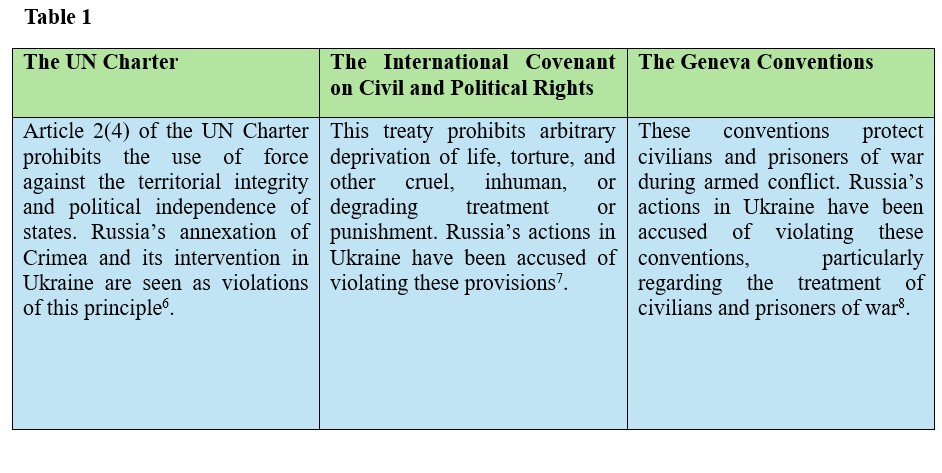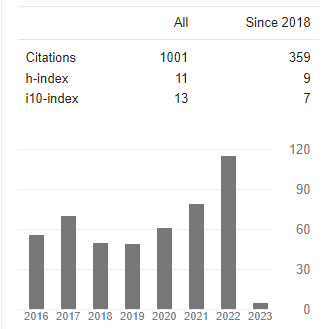Sanctions’ Double-Edged Sword: Decoding the Legal Foundations and Human Rights Outcome of Global Measures against Russian Citizens
Abstract
This research paper delves into the intricate relationship between international sanctions and the human security landscape of Russian citizens, illuminating the often-overlooked consequences of these measures. It offers a critical examination of the legal frameworks that underpin such sanctions, assessing their intended objectives against the backdrop of real-world effectiveness and ethical dilemmas. The paper rigorously analyses the international legal instruments employed by sanctioning entities like the UN and EU, questioning the legitimacy of their justifications. The findings suggest that, while aimed at promoting international peace and security, these sanctions may inadvertently erode the very human security which they purport to protect. The research offers innovative policy recommendations aimed at mitigating the adverse effects of sanctions on the populace, advocating for a balanced approach that upholds accountability without compromising the welfare of ordinary citizens.
Downloads
References
Marks SP. Economic sanctions as human rights violations: reconciling political and public health imperatives. Am J Public Health. 1999 Oct;89(10):1509-13. doi: 10.2105/ajph.89.10.1509. PMID: 10511832; PMCID: PMC1508798.
United Nations. (n.d.). Maintain international peace and security | United Nations. https://www.un.org/en/our-work/maintain-international-peace-and-security
European Union sanctions. (n.d.). EEAS. https://www.eeas.europa.eu/eeas/european-union-sanctions_en
OHCHR. (n.d.). International Covenant on Economic, Social and Cultural Rights. https://www.ohchr.org/en/instruments-mechanisms/instruments/international-covenant-economic-social-and-cultural-rights
Purposes and Principles of the UN (Chapter I of UN Charter) | United Nations Security Council. (n.d.). https://www.un.org/securitycouncil/content/purposes-and-principles-un-chapter-i-un-charter#rel2
OHCHR. (n.d.). Convention against Torture and Other Cruel, Inhuman or Degrading Treatment or Punishment. https://www.ohchr.org/en/instruments-mechanisms/instruments/convention-against-torture-and-other-cruel-inhuman-or-degrading
The Geneva Conventions of 1949 and their Additional Protocols. (n.d.). ICRC. https://www.icrc.org/en/doc/war-and-law/treaties-customary-law/geneva-conventions/overview-geneva-conventions.htm
Wikipedia contributors. (2024, June 26). International sanctions during the Russo-Ukrainian War. Wikipedia. https://en.wikipedia.org/wiki/International_sanctions_during_the_Russo-Ukrainian_War
Mundhra, S., &Mundhra, S. (2024, June 19). The West’s sanctions on Russia are failing: Here’s how Putin bypasses them. First post. https://www.firstpost.com/explainers/the-wests-sanctions-on-russia-are-failing-heres-how-putin-bypasses-them-13783848.html
Turning Sanctions into Reparations: Lessons for Russia/Ukraine. (2023, September 29). Harvard International Law Journal. https://journals.law.harvard.edu/ilj/2023/01/turning-sanctions-into-reparations-lessons-for-russia-ukraine/
The Economist. (2021, April 22). Sanctions are now a central tool of governments’ foreign policy. The Economist. https://www.economist.com/finance-and-economics/2021/04/22/sanctions-are-now-a-central-tool-of-governments-foreign-policy

Copyright (c) 2024 Harsangeet Pal Kaur

This work is licensed under a Creative Commons Attribution 4.0 International License.














